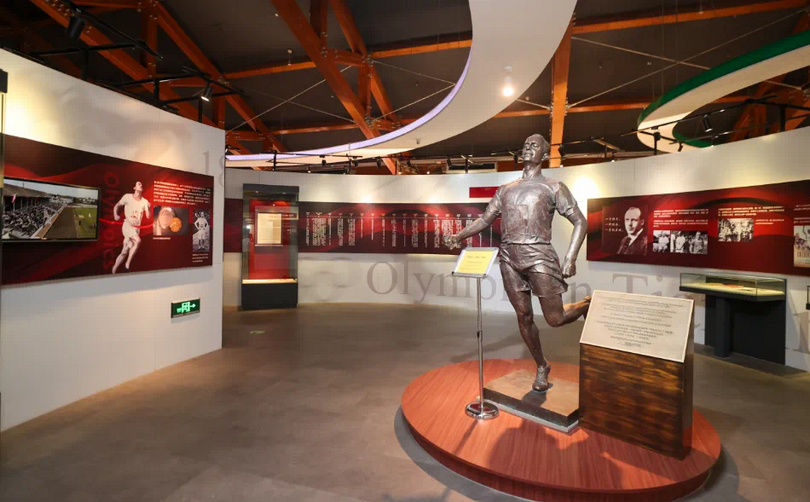The Ministry of Veterans Affairs of China released the fourth batch of 43 individuals and groups recognized as heroes for their contributions during the Chinese People's War of Resistance Against Japanese Aggression, with Scottish missionary Eric Liddell (1902–1945) among those honored.
According to Xinhua News Agency, the announcement on August 29 coincided with the 80th anniversary of the victory in both the War of Resistance and the World Anti-Fascist War. On the same occasion, the State Council issued a notice designating 34 additional national-level memorial facilities and sites related to the conflict.
The list of 43 renowned heroes and heroic groups encompasses representatives from across the Anti-Japanese National United Front, including the Eighth Route Army, the New Fourth Army, the Northeast Anti-Japanese United Army, South China guerrillas, and other people's armed forces led by the Communist Party, as well as Nationalist soldiers and international friends.
Liddell, often remembered as the "Flying Scotsman," rose to international fame at the 1924 Paris Olympics, where he won the gold medal in the 400 meters. He famously refused to run in his signature 100-meter race because the heats were held on a Sunday, demonstrating his deep Christian conviction that Sunday was a day set apart for God.
Yet Liddell's greatest legacy was not on the athletic track but in China. He was born as the son of Scottish missionaries in Tianjin and spent much of his early life in China before returning to Britain for education. After his Olympic victory and graduation from the University of Edinburgh, he chose not to pursue fame or wealth through athletics but to follow in his parents' footsteps as a missionary.
In 1925, Liddell returned to China under the London Missionary Society. He taught at a school in Tianjin, where he was remembered as a patient and humble teacher. Later, he served in rural areas such as Xiaozhang, Hebei Province, where he provided medical assistance to local villagers.
When the Second Sino-Japanese War broke out in 1937, Liddell chose to stay in China despite increasing dangers. He sent his wife and three daughters to Canada for safety, but he himself remained in service. In 1943, he was interned by the Japanese army in the Weihsien Internment Camp (Weifang, Shandong). Even in captivity, Liddell became a pillar of hope for fellow internees. He organized sports activities for children, taught classes, and offered comfort to the sick and discouraged. His fellow prisoners later testified that he often gave up his food rations to others.
Liddell passed away in the camp in February 1945, only months before the war's end, from a brain tumor compounded by exhaustion and malnutrition. His last recorded words were reportedly, "It's complete surrender," reflecting his lifelong devotion to God.
In both China and the United Kingdom, his life of faith and service is remembered and celebrated. In Tianjin, where he once taught and ministered, a memorial garden and statue stand as testimony to his enduring impact. In Edinburgh, the Eric Liddell Community continues his legacy by caring for the elderly and vulnerable in the spirit of compassion he embodied.
In 2024, marking the centenary of his Olympic gold medal in Paris, commemorative events and exhibitions were held in both countries. Before the 2024 Paris Olympics, China's state news outlet Xinhua News Agency published an article entitled "Feature: How a 1924 Paris Olympic Champion Dedicated His Life to China" about the renowned Scottish missionary who "was born in, died in, and dedicated his life to China."Liddell's descendants have also maintained close ties with China, returning to the places where he lived and worked, and participating in cultural exchanges that keep his story alive.












